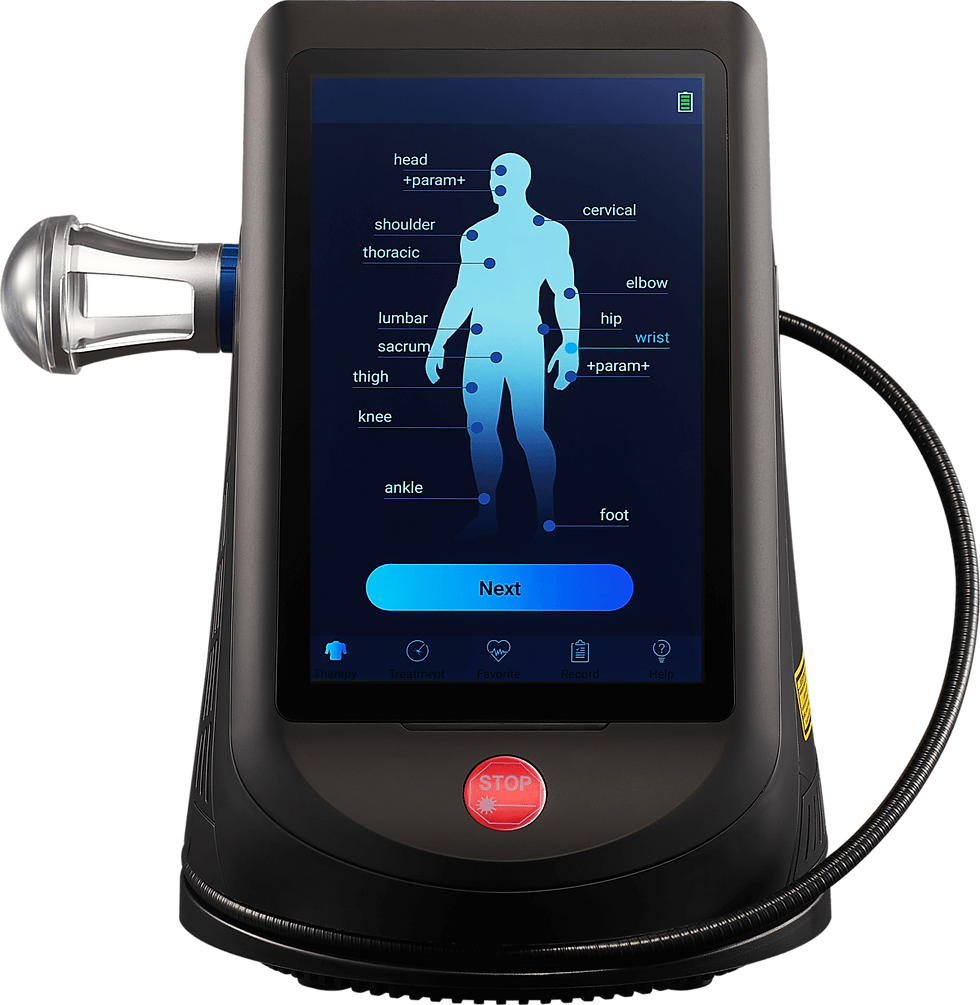Are Orthotics Bad for You? When Custom Orthotics Help — And When You Need More
- Sondema Tarr
- Mar 31, 2024
- 4 min read
Updated: Aug 24, 2025

Many patients wonder: “Are orthotics bad for you?” It’s a fair question. While orthotics can provide much-needed relief, some worry they may weaken the feet or become a long-term crutch.
The truth is: orthotics are neither “good” nor “bad.” They’re simply a tool. When used correctly—and alongside strengthening, retraining, and other integrative therapies—they can be incredibly effective. When used alone without getting to the root cause of your foot problem, it can leave your foot pain lingering, not fully addressed, and undertreated.
Are Orthotics Bad For You?
What Is An Orthotic?
First, let's look into the definition of orthotics or the definition of an orthotic from the Oxford Dictionary.
or·thot·ics
/ôrˈTHädiks/
noun
the branch of medicine that deals with the provision and use of artificial devices such as splints and braces. This answer is nuanced and will be different from person to person.

or·thot·ic
/ôrˈTHädik/
noun
plural noun: orthotics
So, in simpler terms, an orthotic is a type of splint or brace. Splints or braces, limit or stop movement of a body part to ideally prevent pain.
For the discussion in this blog post, when the word "orthotic" is mentioned, we will be discussing specifically shoe inserts, or insoles, used to treat foot pain.
How Are Orthotics Used?

Orthotics are commonly prescribed and used for many types of foot pain like heel pain, or pain in the ball of the foot, which can have many causes like plantar fasciitis, arthritis, or Morton's neuroma.
Orthotics are also used in patients with diabetes, neuropathy, or poor circulation to provide protection and additional padding to the sole of their foot, to lower the risk of developing a foot ulcer, and possibly a life-threatening infection or amputation.
Orthotics have the ability to remove or redirect pressure or forces to certain areas of the foot, allowing those tissues to begin the healing process.
Why People Worry About Orthotics

You’re not alone if you’ve hesitated about orthotics. Common concerns include:
Weakened muscles: Will my feet “get lazy” if I always rely on them?
Dependency: Once I start wearing them, will I have to wear them forever?
Bad past experiences: Many people have tried generic insoles that didn’t fit, caused new pain, or felt bulky in shoes.
Cost vs. benefit: Custom orthotics are an investment, so patients want to be sure they’re the right choice.
When Custom Orthotics Help
Custom orthotics are very different from over-the-counter inserts. They’re designed for your unique feet, activity level, and goals. They can:
Relieve pain from plantar fasciitis, heel pain, or Achilles issues
Improve alignment for bunions or flat feet
Reduce stress on joints in arthritis
Support athletes during training or recovery
Help prevent injury by correcting abnormal biomechanics
For many people, orthotics are the first step in getting relief.

When Orthotics Can Backfire
Orthotics aren’t always the answer. They may create problems if:
They’re relied on forever in cases of sudden foot pain (ex: plantar fasciitis) without retraining the foot muscles
They’re generic or poorly fitted, leading to blisters, pain, or poor alignment
They’re used as a “mask” for pain, without addressing root causes like weak muscles, limited mobility, or wrong shoes for your foot type, or diet and lifestyle factors
In these cases, you may feel better short-term—but not build long-term strength.
Why Muscle Retraining Matters

Your feet contain 29 muscles designed to support your arch, absorb shock, and stabilize your body.
If these muscles are underused, orthotics may simply replace their job instead of restoring it.
Through foot retraining exercises—like arch lifts, balance drills, and toe mobility—you can reactivate and strengthen these muscles. Many patients discover that as their feet grow stronger, their need for orthotics decreases, or they use them only for specific situations (like long runs, hikes or in certain shoes).
At Direct Podiatry Arizona, we believe orthotics work best as a bridge—reducing pain while we retrain and strengthen your feet for long-term resilience.
Integrative Foot Care in Tempe

Orthotics can be an important piece of the puzzle, but they’re not the whole picture. At Direct Podiatry Arizona, we combine:
Custom orthotics (when appropriate)
Muscle retraining and strengthening plans
Supportive footwear recommendations
Advanced treatments like laser therapy and regenerative injections
Integrative support for long-term relief
This whole-body approach ensures your treatment is customized—not one-size-fits-all.
How to Know What’s Right for You
If you’ve wondered whether orthotics are right for you, the answer depends on your unique situation. They may be perfect for short-term relief, or they may be just the starting point toward a bigger plan that helps you move comfortably through life pain free.
Schedule Your Appointment At Direct Podiatry Arizona

Looking for a podiatrist in Phoenix? Orthotics can be a great start—but they’re most effective when paired with muscle retraining and tailored treatments. At Direct Podiatry Arizona, Dr. Tarr will evaluate your foot mechanics, recommend custom orthotics if you need them, and design a plan that builds stronger, healthier feet for the future.
From custom cushioning to laser therapy, we offer treatments to restore comfort and confidence. Book your appointment today and take your first step toward relief.



Comments